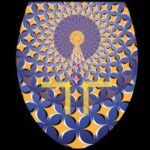[et_pb_section fb_built=”1″ _builder_version=”4.19.2″ _module_preset=”default” global_colors_info=”{}”][et_pb_row _builder_version=”4.19.4″ _module_preset=”default” global_colors_info=”{}” column_structure=”1_2,1_2″][et_pb_column type=”1_2″ _builder_version=”4.19.4″ _module_preset=”default” global_colors_info=”{}”][et_pb_text _builder_version=”4.19.4″ _module_preset=”default” global_colors_info=”{}”]
Glossary
[/et_pb_text][et_pb_post_slider include_categories=”313″ _builder_version=”4.19.5″ _module_preset=”default” hover_enabled=”0″ global_colors_info=”{}” excerpt_length=”420″ sticky_enabled=”0″][/et_pb_post_slider][/et_pb_column][et_pb_column _builder_version=”4.19.5″ _module_preset=”default” type=”1_2″][et_pb_code _builder_version=”4.19.5″ _module_preset=”default” theme_builder_area=”post_content” hover_enabled=”0″ sticky_enabled=”0″]
[/et_pb_code][/et_pb_column][/et_pb_row][/et_pb_section][et_pb_section fb_built=”1″ theme_builder_area=”post_content” _builder_version=”4.19.5″ _module_preset=”default” background_enable_pattern_style=”on” background_pattern_style=”shippo” background_pattern_size=”custom” background_pattern_height=”25px” background_pattern_width=”25px” hover_enabled=”0″ sticky_enabled=”0″][/et_pb_section][et_pb_section fb_built=”1″ _builder_version=”4.19.4″ _module_preset=”default” global_colors_info=”{}”][et_pb_row _builder_version=”4.19.4″ _module_preset=”default” global_colors_info=”{}”][et_pb_column type=”4_4″ _builder_version=”4.19.4″ _module_preset=”default” global_colors_info=”{}”][et_pb_text _builder_version=”4.19.5″ _module_preset=”default” hover_enabled=”0″ sticky_enabled=”0″ custom_padding=”0px|||||”]Table of Contents
[/et_pb_text][et_pb_blog posts_number=”30″ include_categories=”313″ use_manual_excerpt=”off” excerpt_length=”142″ show_more=”on” show_author=”off” show_date=”off” show_categories=”off” _builder_version=”4.19.5″ _module_preset=”default” read_more_font=”||||on|||#E09900|wavy” background_color=”rgba(244,244,244,0.71)” hover_enabled=”0″ global_colors_info=”{}” sticky_enabled=”0″][/et_pb_blog][/et_pb_column][/et_pb_row][/et_pb_section][et_pb_section fb_built=”1″ _builder_version=”4.19.2″ _module_preset=”default” global_colors_info=”{}”][/et_pb_section][et_pb_section fb_built=”1″ _builder_version=”4.19.2″ _module_preset=”default” global_colors_info=”{}”][/et_pb_section]
